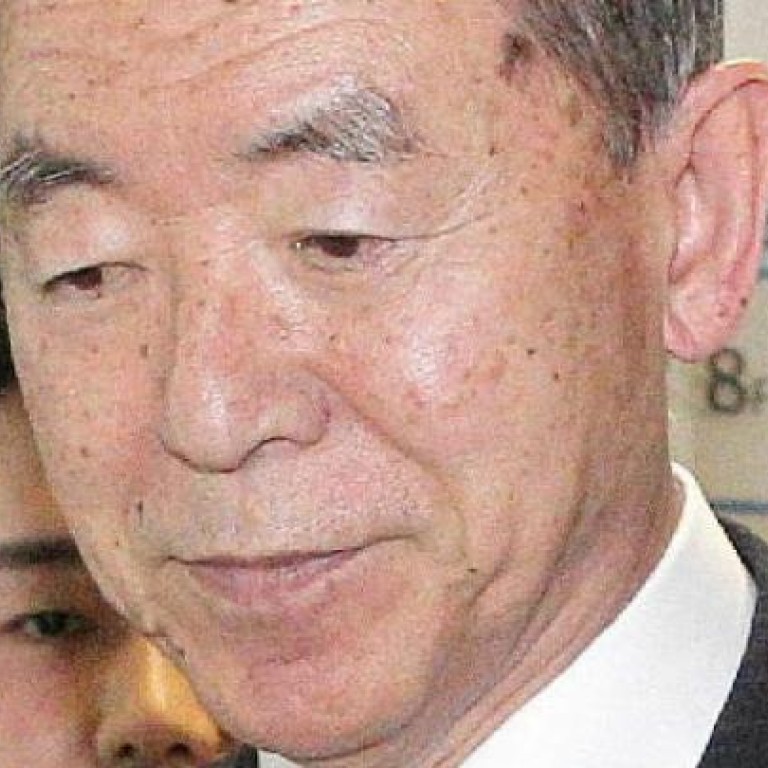
Tokyo set to replace its ambassador in Beijing Uichiro Niwa
Reports that Uichiro Niwa, Tokyo's ambassador to Beijing, is being replaced have been welcomed among the growing number of Japanese calling on the government to be firmer with neighbouring nations over the future of the Diaoyu Islands.
Media reports indicated that Niwa, 73, formerly the chairman of the trading house Itochu Corp, will be replaced next month by Shinichi Nishiyama, presently a deputy foreign minister.
There have been suggestions that Niwa's replacement is merely a regular rotation of Japan's top diplomats, but if that is the case then the timing is poor.
Niwa has been under fire since he gave an interview in June to the in which he expressed his opposition to Shintaro Ishihara, the governor of Tokyo, pushing ahead with a plan for the metropolitan government to purchase the privately owned islands that make up the archipelago, known as the Senkaku Islands in Japan.
The project would "result in an extremely grave crisis in relations between Japan and China," Niwa was quoted as saying.
Ishihara called for Niwa to be fired. Pressure on the ambassador grew from all sides of the political spectrum on the grounds he had failed to clearly state the Senkaku Islands were sovereign Japanese territory.
"Niwa is an appeaser for the Chinese Communist Party," said Yoichi Shimada, a professor of international relations at Fukui Prefectural University. "He was too weak and gave in to the authorities there. His departure is good for Japan."
Shimada said that Niwa approached diplomacy in the same way as he had previously operated as a businessman in China.
"In order to do business there, Japanese businesses have to buy favourable treatment from the Chinese authorities," he said.
The replacement of Niwa with a career bureaucrat underlines the "grave mistake" the Democratic Party of Japan (DPJ) made when it was first elected in 2009 to turn its back on its traditional ally, the United States, and attempt to forge new alliances with its Asian neighbours. That policy is now dead in the water, Shimada said.
"In order to have a stable diplomatic relationship with China, it is necessary for Japan to have good relations with the US," he said. "China is not afraid of Japan, but China is afraid of the US, particularly of its potential military involvement."
Niwa's appointment was initially hailed as opening up a new era in which leading businesspeople could become Japan's top representatives overseas.
When it was in opposition, the DPJ had criticised the policy of the previous administration as one of "diplomacy that is led by bureaucrats" - but its own efforts have clearly fared no better.
"The diplomats in the foreign ministry will be delighted at this turn of events because they will be getting a plum assignment back," said Jun Okumura, a senior adviser and political analyst with the Eurasia Group.
"The Beijing posting is now on a par with the post of ambassador to Washington and they will be very happy to get it back again."
But the new ambassador to Beijing will immediately step into an extremely delicate diplomatic face-off over the islands.

